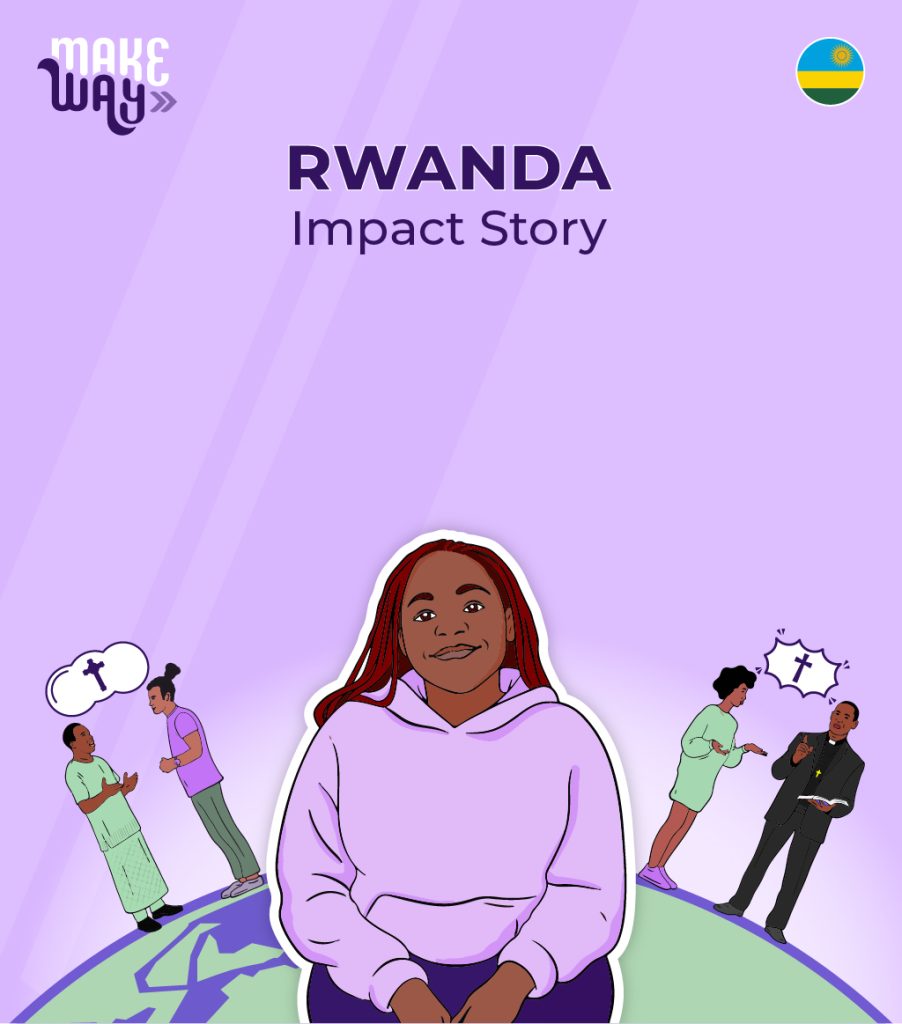Reverend Thérèse Mukamakuza and Jules Ruhumuriza
In Rwanda, this initiative is tackling stigma around gender-based violence through religious engagement
Reverend Thérèse Mukamakuza and Jules Ruhumuriza
In largely religious contexts like Rwanda, knowledge and agency with regards to sex can often be met with stigma and blanket prohibition, presenting multi-dimensional barriers to accessing sexual and reproductive health rights (SRHR) and services. Issues like gender-based violence (GBV) are often met with apathy. Reverend Thérèse Mukamakuza of the Presbyterian Church and Jules Ruhumuriza led training workshops with religious leaders, district authorities and the youth in Rwanda’s Kirehe district. These workshops supported by Make Way seek to address the stigma and apathy through engagement with duty-bearers in the community, emphasising the importance of addressing sensitive SRHR issues and promoting open communication. Read more →
In the workshops, they used guides based on the Intersectional See-Judge-Act (ISJA) tool. This Make Way tool helps to identify and analyse SRHR matters from a religious perspective during interactive community studies. The questions in the tool are designed to highlight the many factors and experiences which overlap and combine to shape an individual’s identity, particularly youth with compounded vulnerabilities.
Reverend Mukamakuza notes that a major gap between SRHR and the church is caused by a dominant patriarchal culture within the church. The Executive Secretary of the Circle of Concerned Theologians Rwanda and PhD candidate mentions that sensitive issues, especially those affecting girls and women, are deprioritised in the church where the majority of clergy are men. This further derails information and knowledge critical for good SRHR, leaving vulnerable communities at the mercy of harmful stereotypes and other forms of misinformation.
Jules Ruhumuriza, another facilitator of the workshop says there was a notable lack of comprehensive and accessible information on SRHR topics, among both religious leaders and young people, which revealed a critical need for strengthening SRHR education, as well as the capacity of community leaders to deliver effective and supportive SRHR services.
Training sessions for religious leaders are necessary. Jules Ruhumuriza, Programme Manager of Make Way Rwanda’s faith-based collaborating partner Action des Eglises Evangéliques pour la Promotion de la Santé et Développment (AESD), explains why:
Impact of Make Way advocacy
In Kirehe District, where the training sessions are conducted, Make Way has also supported the establishment of ‘safe spaces’, where youth including those with disabilities, GBV victims and young mothers often gather to share experiences and knowledge without fear of judgement, discrimination or violence. In safe spaces, their identity, feelings and experiences are respected and acknowledged; which makes it a conducive environment for them to share openly about sensitive topics like SRHR.
As a result of similar training workshops in the past, some religious leaders embraced their role in SRHR advocacy, tackling otherwise sensitive topics in their teachings to the youth. Together with select district leaders, the clergy in Kirehe and nearby districts now address cases of gender-based violence (GBV) within the communities, addressing the stigma around it.
Ruhumuriza adds: “We have received positive feedback regarding the programme impact, mainly in mindset transformation and skills transfer to religious leaders, youth and teen mothers. The clergy and leaders now advocate for survivors of gender based violence, as well as children of teen mothers without legal status.”
Preach less, teach more
In her final message to fellow clergy, Reverend Mukamakuza says: “As we preach to young people about heaven, we also have to guide them on how to navigate the sensitive issues like SRHR which they face here on earth.” She stresses that the clergy have a moral and ethical responsibility — not to treat sexual and reproductive issues as a taboo, but rather to teach youth about it. “We must preach less, and teach more.”
Article by Edna Ninsiima.





